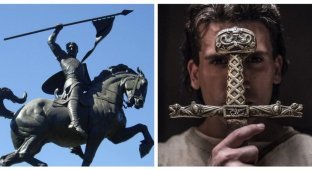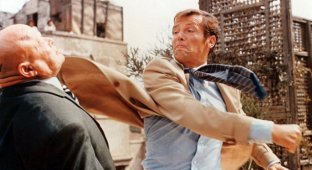To be considered the prototype of the most noble the robber of all times, a lot of people claim. But perhaps the most The one who looks plausible on this list is Roger Godberd. 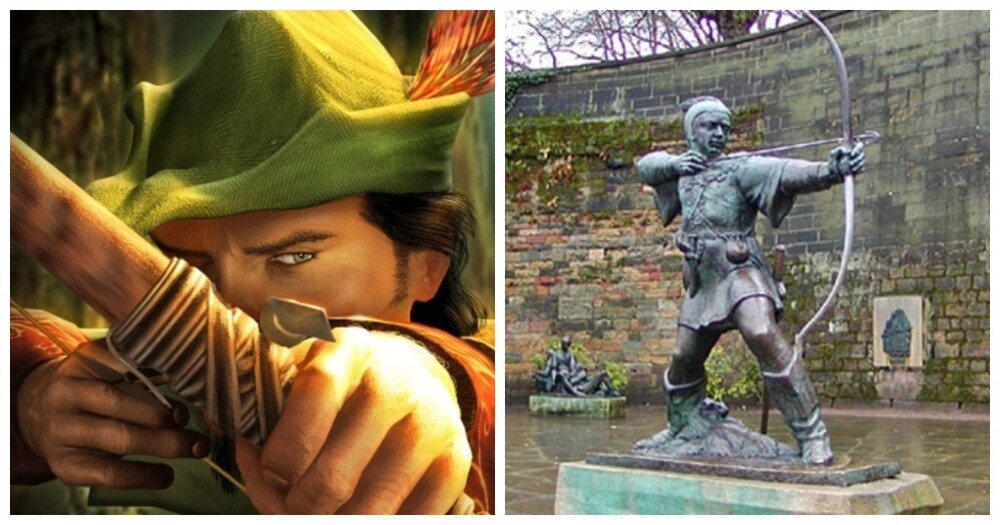
The ancient surname of this knight who was born circa 1220, translated as "glorified by God". The guy was tough temperament - he constantly fought with his stepfather, who tried to deprive him his legal inheritance. And when Roger finally achieved his goal and strengthened his lands, then it was the neighbors’ turn. 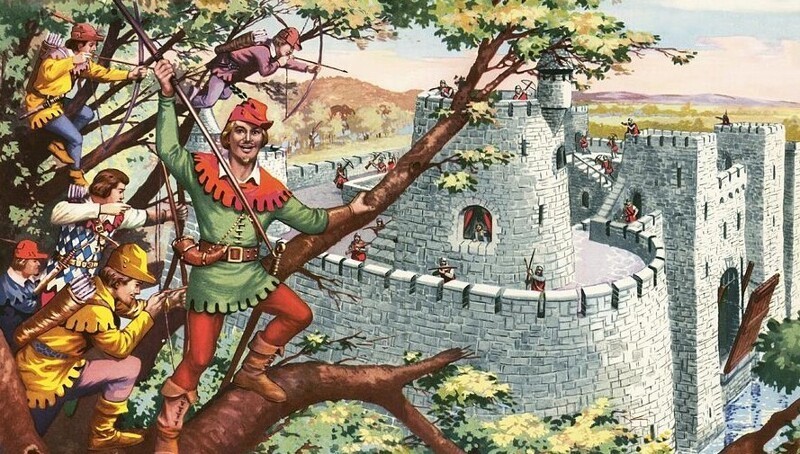
Plus, as befits a knight, Godberd was a man quite wasteful, didn’t really consider money. Which led to almost complete ruin. For his debts he had to pay Garendon Abbey a substantial piece of his possessions. But then the knight returned his. Is it true, in a specific way: being in the service of the authoritative Count Simon de Montfort, together with a detachment of tough guys armed to the teeth, burst into monastery, asked the astonished abbot for donation documents and tore them to shreds.
Knight vs King 
Henry III
But this is particular. How is the ballad about a noble robber connected with this real historical figure?
King Henry III was on the throne at that time. (1207-1272). The monarch was such a good manager, he squandered the treasury left and right, and replenished it through new taxes. Glasses, accordingly, he did not add to himself, but only provoked anger and irritation people. 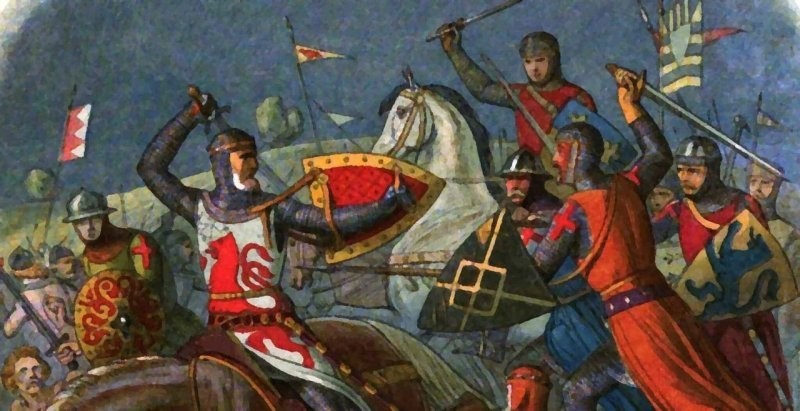
Unrest began. During this period, Roger had just entered service to de Montfort, who organized a rebellion against the king, deciding to slightly limit his absolute power, from which both the rich and poor. Henry III became quiet, fearing overthrow. At first everything went well not bad, even the assembled parliament began work. But then Heinrich tensed up, gathered all the fighters loyal to him and completely defeated Simon in Battle of Evesham. 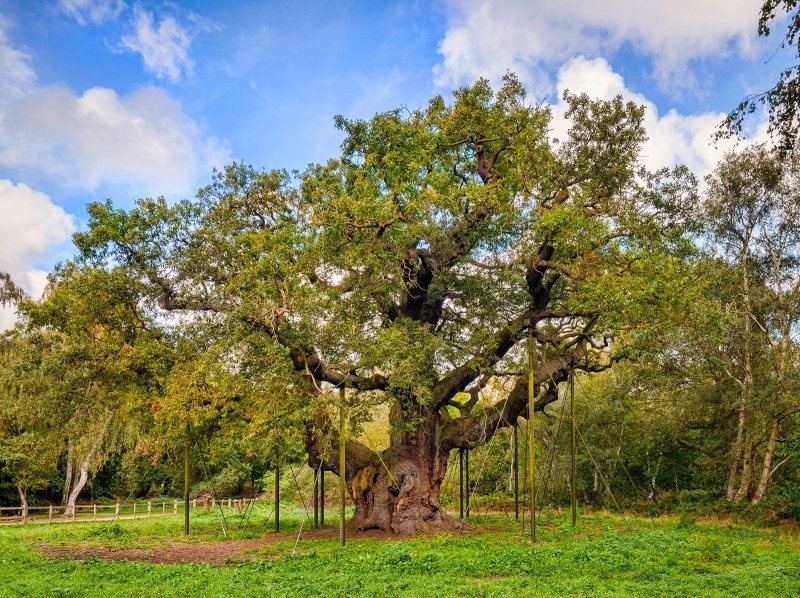
The famous oak tree in Sherwood Forest, considered the headquarters of Robin Hood
Roger also participated in the battle. And after complete defeat disappeared into Sherwood Forest along with several associates. Guys They slowly became partisans, earning their living by robbery. Only, unlike from the romanticized image of the hero, his prototype is honestly stolen He did not give it to the poor, but sold it. Even if not at the market price, but lower, but still.
Pension, but not quite 
Edward I
Naturally, the elusive forest guerrilla was targeted hunting. He almost got caught several times. But in the end, he still served time in Tower is three years old. But then the government changed. Henry's place was taken by his son Edward I, who turned out to be smarter than his parent and began reforms. He granted pardon to the active prisoner. And Roger and his associates returned safely to his native Leicestershire, settled down, went to work on the land, got married and had children. True, he did not retire completely: in his The Swanington estate was periodically populated by some shady characters. Yes and Robberies in the forests occurred, although not on the same scale as before. 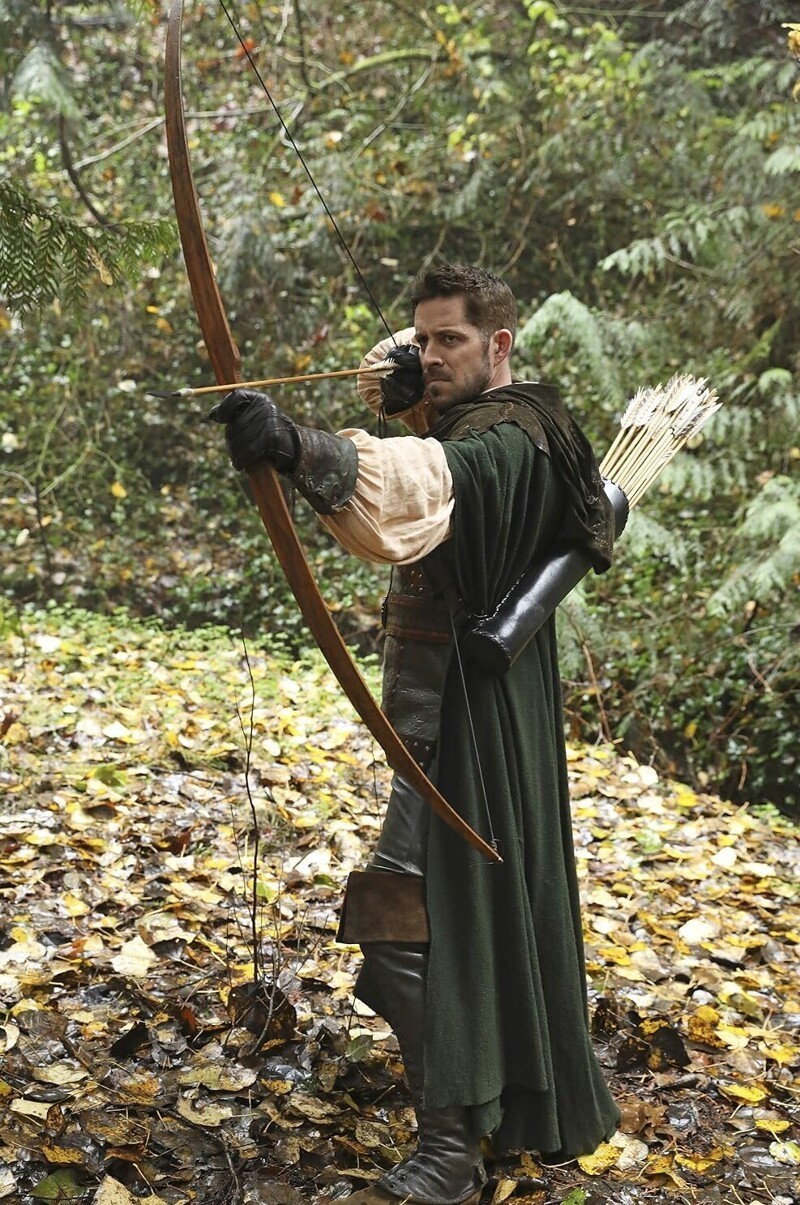
Still, a black dog, as they say, cannot be washed white. AND nature cannot be changed. But Roger lived to be quite old for his time. years old, died at about 60 of natural causes. 
Roger's grave
Of course, Robin Hood is a collective image. But in many ways he echoes Godberd’s stories: he didn’t like the sheriff (king), and He did not favor clergymen, and committed robbery in Sherwood. But with a high share It is likely that the rebel participated in the birth of the legend. And nationwide love deserved it by being at enmity with the king and his supporters. And people just took the path of least resistance: the enemy of my enemy is my friend and romanticized the image of a daring thug, turning him into a noble robber.
Add your comment
You might be interested in:












